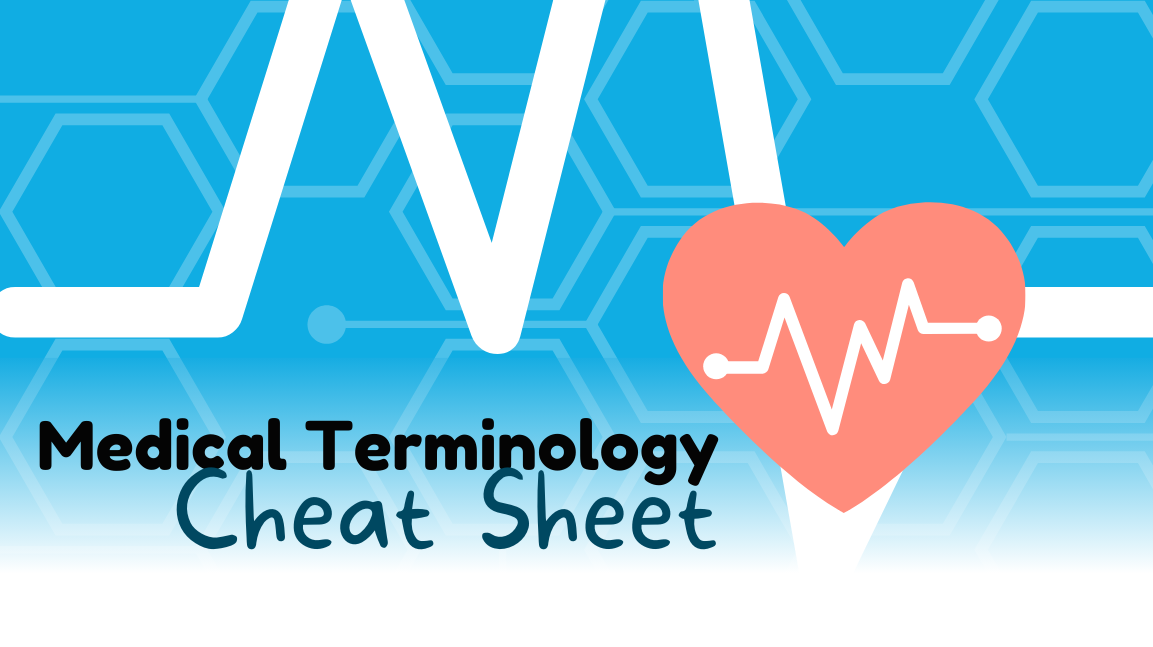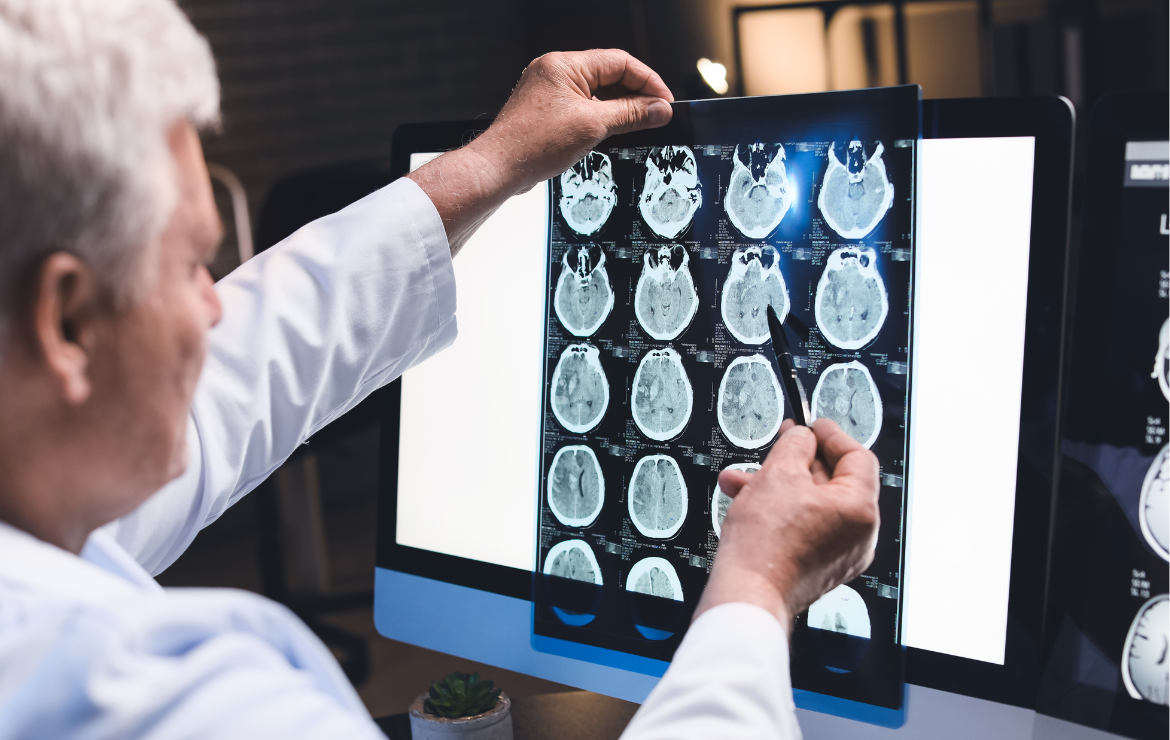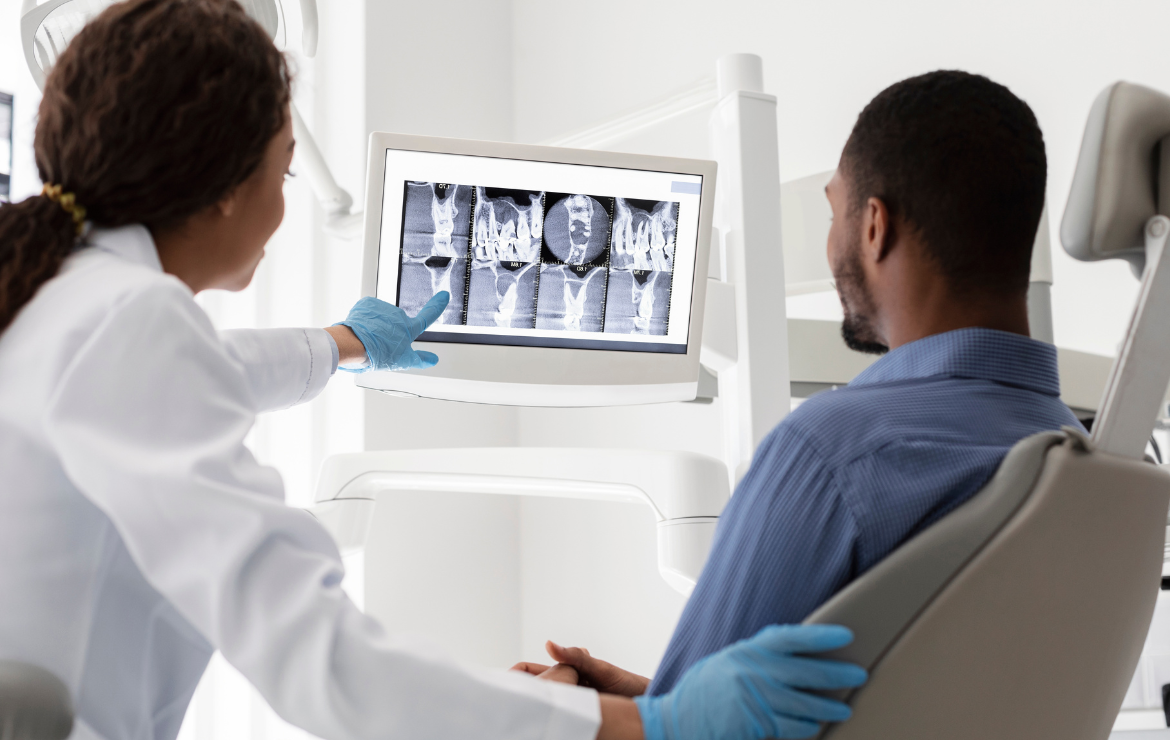Medical Terminology in Workers’ Compensation Cheat Sheet

Fracture: A break or crack in a bone.
 Download Cheat Sheet |
Sprain: Stretching or tearing of ligaments, which connect bones to each other.
Strain: Overstretching or tearing of muscles or tendons, which connect muscles to bones.
Contusion: A bruise, typically caused by blunt force trauma.
Laceration: A deep cut or tear in the skin.
Hematoma: A collection of blood outside of blood vessels, often forming a bruise or swelling.
Concussion: A traumatic brain injury caused by a blow to the head or violent shaking of the head.
Abrasion: A superficial injury to the skin, often referred to as a scrape.
Dislocation: Displacement of a bone from its normal position within a joint.
Tendonitis: Inflammation of a tendon, usually due to overuse or repetitive motion.
Bursitis: Inflammation of the bursae, small fluid-filled sacs that cushion joints and reduce friction.
Carpal Tunnel Syndrome: Compression of the median nerve in the wrist, leading to pain, numbness, and weakness in the hand and arm.
Rotator Cuff Injury: Damage to the muscles and tendons surrounding the shoulder joint.
Herniated Disc: When the soft center of a spinal disc pushes through a crack in the tougher exterior casing, often causing pain or numbness.
Degenerative Disc Disease: Wear and tear on spinal discs, typically causing pain and stiffness.
Sciatica: Pain that radiates along the path of the sciatic nerve, typically down the lower back, hip, and back of the leg.
Whiplash: Neck injury resulting from a sudden, forceful back-and-forth movement of the neck, often due to a rear-end car collision.
Burns: Damage to the skin caused by heat, chemicals, electricity, or radiation.
Amputation: Surgical removal of a body part, usually a limb or extremity.
Dysarthria: Difficulty in speaking due to weakness or lack of coordination of the muscles used for speech.
Dysphagia: Difficulty swallowing.
Ataxia: Lack of muscle coordination, leading to unsteady movements and difficulty with balance and coordination.
Dystonia: A movement disorder in which muscles contract involuntarily, causing repetitive or twisting movements.
Myoclonus: Brief, involuntary muscle twitching or jerking.
Agnosia: Inability to recognize or interpret sensory information, such as objects or faces.
Apraxia: Difficulty with voluntary movements despite the absence of muscle weakness.
Dysuria: Painful or difficult urination.
Hematuria: Presence of blood in the urine.
Pyuria: Presence of white blood cells in the urine often indicates an infection.
Xerostomia: Dry mouth, often due to reduced saliva production.
Dyschezia: Painful or difficult defecation.
Dyspnea: Difficulty breathing or shortness of breath.
Orthopnea: Difficulty breathing while lying flat.
Paroxysmal Nocturnal Dyspnea (PND): Sudden onset of severe shortness of breath that occurs during sleep.
Tachypnea: Abnormally rapid breathing.
Bradypnea: Abnormally slow breathing.
Atelectasis: Collapse or closure of a part of the lung, leading to reduced or absent gas exchange.
Pleurisy: Inflammation of the lining of the lungs and chest cavity, causing sharp chest pain that worsens with breathing.
Hemoptysis: Coughing up blood from the respiratory tract.
Hematemesis: Vomiting blood.
Dysphonia: Difficulty speaking due to voice changes or hoarseness.
Chronic Pain Syndrome: Persistent pain lasting beyond the normal healing time, often associated with psychological factors.
OTHER SOURCES
Abbreviations
https://openmd.com/dictionary/https://openmd.com/dictionary/medical-abbreviationsAbbreviations
Definitions
https://openmd.com/dictionary/










